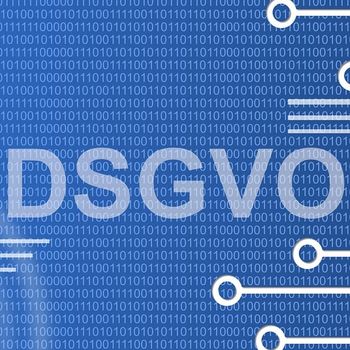
The European Union's General Data Protection Regulation is exhausting, but a success story. The European Commission should use the fifth anniversary of the GDPR to think carefully about "Privacy Shield 2.0".
The GDPR celebrates its fifth anniversary. The European General Data Protection Regulation has been in force since May 25, 2020. Even if it cost those responsible a lot of nerves when it was introduced, it can still be considered a success story. For example, it has had an extremely positive effect: namely, it has raised general awareness of the problem of data protection. This was not least due to the many headlines about the hefty fines imposed for violations of the GDPR. Even powerful US players have to tremble before her. The meta group, which was sentenced to a record fine of 1,2 billion euros for the transfer of European Facebook user data to the USA, recently felt the effects of this.
A success-story
That the GDPR is a success story is also shown by the fact that it has found many worldwide imitators. Australia, Brazil, South Korea, Thailand and even US states like California have adopted the data protection laws. And on September 1, 2023, the new Data Protection Act (nDSG) will come into force in Switzerland. It will strengthen the rights of Swiss citizens in the digital age and raise the data protection of the Confederation to a level comparable to that of the EU states - by also being based on the GDPR.
It goes without saying that companies should comply with the provisions of the European General Data Protection Regulation. In addition to the many good moral, legal and financial reasons, there is now another good reason after five years: In the future, companies will also have to be able to claim damages for violations recover immaterial damages. In a landmark judgment, the European Court of Justice confirmed at the beginning of May 2023 that those affected by violations for immaterial impairments such as exposure can claim damages, similar to compensation for personal injuries. It is therefore more important than ever for companies to implement clean processes to fulfill their obligations.
Data transfer to America
For the European Commission, the five-year anniversary would actually be the ideal occasion to take another look at itself. She is about to make the same mistake a third time. In recent years, the European Court of Justice has already overturned two agreements between the Commission and the USA. First "Safe Harbor" and then "Privacy Shield" were supposed to ensure secure data transfer from Europe to America, but the top European judges pulled the emergency brake both times. Because of the comprehensive access rights of the American secret services, according to their reasoning, the personal data of European citizens is not sufficiently protected by US companies within the meaning of the GDPR.
Do you have a moment?
Take a few minutes for our 2023 user survey and help make B2B-CYBER-SECURITY.de better!You only have to answer 10 questions and you have an immediate chance to win prizes from Kaspersky, ESET and Bitdefender.
Here you go directly to the survey
The European Commission and the US government recently agreed on a new rule that faces the same fate. There is nothing to indicate that anything will change in the American surveillance laws – and thus in the basic problem. Data protectionists therefore assume that the European Court of Justice will also rescind this "Privacy Shield 2.0" agreement. Companies then face further years of legal uncertainty when using US cloud solutions. In order to prevent this, the European Commission should, on the occasion of the GDPR anniversary, think about what it really needs: a “No Spy” agreement with the USA, which guarantees that there will be no secret service activities. Until such an agreement is reached, the clouds cannot be used legally by US providers for personal data. It's a good thing that there are digitally sovereign solutions as alternatives. (Holger Dyroff, co-founder and COO of ownCloud)
More at owncloud.com
About ownCloud ownCloud develops and integrates open-source digital collaboration software that enables teams to easily share and share files from anywhere, on any device. More than 200 million people worldwide already use ownCloud as an alternative to public clouds - and thus opt for more digital sovereignty, security and data protection.
